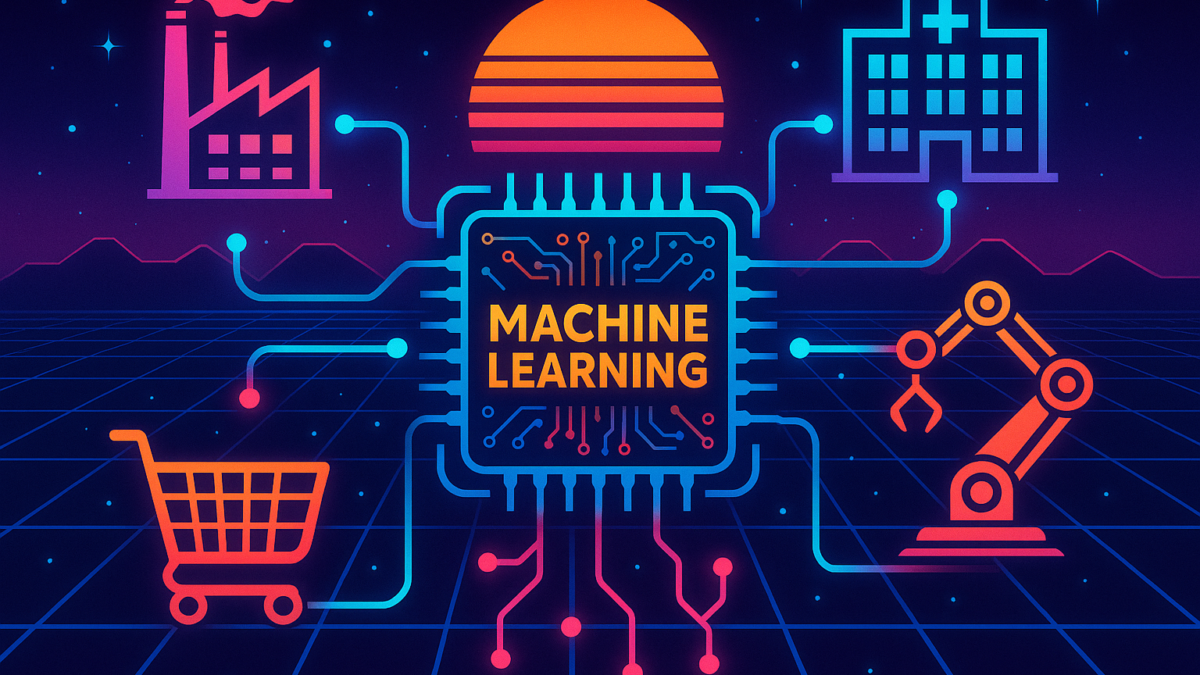Top 7 Machine Learning Use Cases That Are Disrupting Industries in 2025
Table of Contents
Introduction
Machine Learning (ML) is no longer just a buzzword—it’s the backbone of modern innovation. In 2025, ML is redefining how businesses operate, predict, and scale across industries. From optimizing supply chains to diagnosing diseases, its real-world impact is both measurable and transformative.
Here are the top 7 machine learning use cases that are disrupting industries in 2025.
Predictive Healthcare: Diagnosing Before Symptoms Appear
Machine learning is revolutionizing the healthcare sector by predicting diseases before they manifest. Algorithms now analyze patient data, genetic information, and lifestyle factors to flag potential health risks.
Real-World Impact:
- Early detection of diseases like cancer, diabetes, and Alzheimer’s.
- AI-driven diagnostics improving accuracy and reducing human error.
- Wearables paired with ML predicting heart conditions in real-time.
Key Players: IBM Watson Health, PathAI, Tempus
Fraud Detection in Banking and Finance
Banks are leveraging ML to detect fraud in real time, analyzing thousands of data points in milliseconds. These systems can flag unusual transactions, detect account takeovers, and assess credit risk—all automatically.
Real-World Impact:
- ML algorithms reduce false positives while catching sophisticated fraud patterns.
- AI chatbots help in compliance reporting and customer service.
- Risk scoring and behavioral biometrics improve security.
Key Players: Mastercard AI, FICO, Darktrace
Retail Personalization: Beyond Recommendations
Retailers in 2025 are no longer just using ML to suggest “what you may like.” They’re creating entirely personalized shopping journeys, predicting demand, and optimizing pricing based on consumer behavior.
Real-World Impact:
- Dynamic pricing engines based on real-time demand trends.
- AI curates entire outfits based on browsing patterns.
- Hyper-personalized email and product campaigns.
Key Players: Amazon, Stitch Fix, Salesforce Einstein
Smart Manufacturing and Predictive Maintenance
In factories, machine learning is the brain behind Industry 4.0—automating production, detecting faults, and forecasting maintenance needs before breakdowns happen.
Real-World Impact:
- Sensors feed real-time data into ML systems to predict part failures.
- Computer vision identifies defects in production lines.
- ML optimizes inventory and energy usage for cost efficiency.
Key Players: Siemens, GE Digital, Uptake
Autonomous Vehicles and Traffic Optimization
Machine learning is driving the future of autonomous transportation, from self-driving cars to intelligent traffic management systems.
Real-World Impact:
- Vehicles use ML to detect pedestrians, road signs, and hazards.
- AI predicts traffic congestion and reroutes in real time.
- Ride-sharing apps use ML to improve ETA and reduce wait times.
Key Players: Tesla, Waymo, NVIDIA, Uber AI
Content Moderation and Sentiment Analysis in Media
Social media and news platforms are flooded with content every second. ML algorithms help in automating content moderation, detecting hate speech, and analyzing public sentiment.
Real-World Impact:
- NLP-based ML tools filter offensive language and misinformation.
- Real-time sentiment tracking on political and product launches.
- AI creates auto-generated video captions and translations.
Key Players: Meta AI, OpenAI, Grammarly, YouTube AI
Legal and Compliance Automation
The legal sector is seeing a quiet but powerful disruption. ML tools are now assisting with contract review, case research, and regulatory compliance.
Real-World Impact:
- Legal research that once took days is now completed in seconds.
- AI flags risky clauses in NDAs and commercial agreements.
- Compliance bots keep firms aligned with changing regulations.
Key Players: Luminance, LawGeex, Kira Systems
Final Thoughts: ML Is Industry-Agnostic, Impact-Specific
The beauty of machine learning is that it’s industry-agnostic. Whether it’s finance, retail, healthcare, or law—ML adapts, learns, and evolves based on the data it’s given.
In 2025, the winners will be companies that don’t just adopt machine learning, but integrate it into the core of their decision-making and operations.
As ML becomes more accessible via no-code/low-code platforms, expect even small and mid-sized businesses to gain massive benefits from intelligent automation.
You May Also Like: Can AI Understand Emotion? The Rise of Empathic Algorithms





